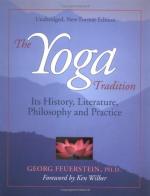|
This section contains 6,796 words (approx. 23 pages at 300 words per page) |

|
SOURCE: Freeman, Michael. “Truth and Justice in Bertolt Brecht.” Cardozo Studies in Law and Literature 11, no. 2 (winter 1999): 197-214.
In the following essay, Freeman examines Brecht's notions about law, morality, and justice as revealed through his play The Caucasian Chalk Circle.
I. Not Bertolt Brecht
This paper is not about truth and justice in Bertolt Brecht, the man. There was not much of either of these values in his life. Like Dubedat in Shaw's The Doctor's Dilemma, he was a “scoundrel but an artist.”1 Politically self-serving, a misogynist, plagiarist and anti-Semite,2 he crossed “his fingers for Hitler” when he heard of the July Plot.3 Of his denial later that he was or had been a member of the Communist Party, John Fuegi observes
Like Galileo before the Inquisition, Brecht helped strengthen the hands of his inquisitors. … He weakened the case of his colleagues in the Hollywood script-writing community and...
|
This section contains 6,796 words (approx. 23 pages at 300 words per page) |

|


